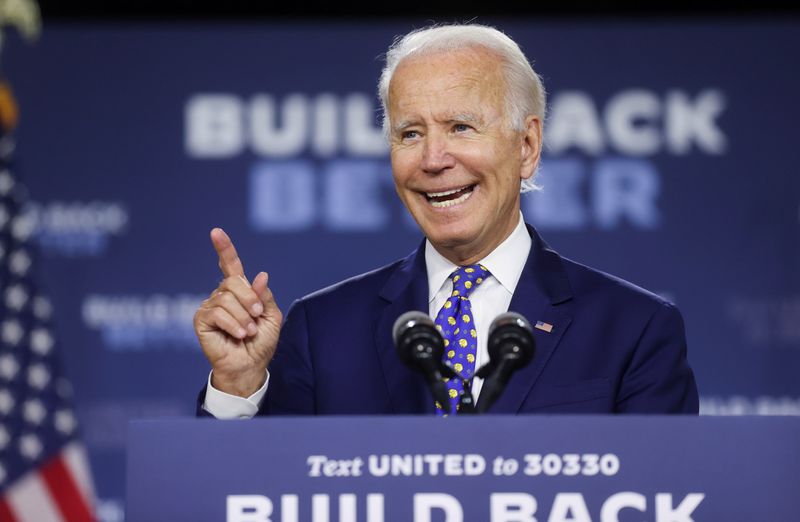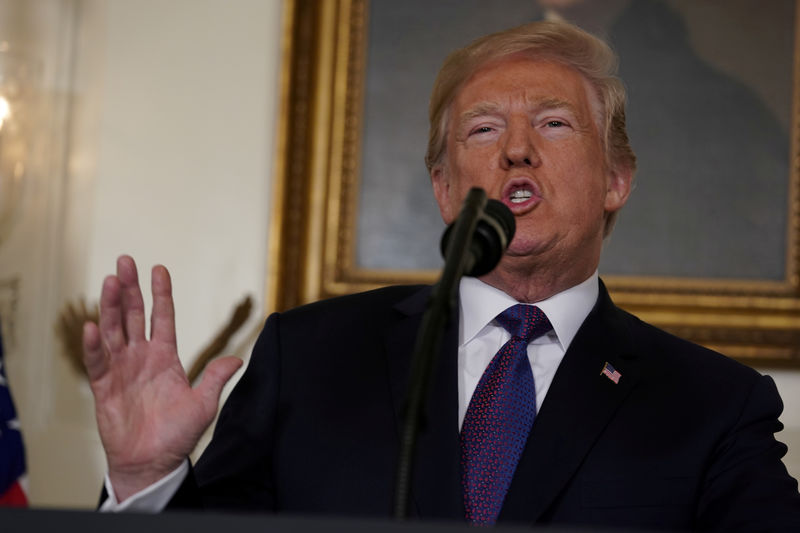By Joseph Ax
(Reuters) - As polls show Texans increasingly frustrated with President Donald Trump's response amid a massive resurgence in coronavirus cases, Democrats say they have a real chance to turn a long-held dream into reality: winning the state's presidential contest for the first time in more than four decades.
In recent weeks, Joe Biden's campaign has aired television ads specifically aimed at Texans – the first time a Democratic presidential candidate has done so in a quarter-century, according to the state party – and made its first hires there.
Texas is among the states targeted by a $280 million fall advertising blitz the campaign unveiled last week, part of a broader strategy aimed at putting Republican-leaning states, including Georgia, Iowa and Ohio, in play ahead of the Nov. 3 election against the Republican Trump.
With polls showing Biden holding a national lead over Trump and effectively tied in Texas, Democrats say a concerted effort in the state could expand his viable paths to the White House.
"Because of the pandemic, the battleground has grown," said Democratic U.S. Representative Filemon Vela, who represents a south Texas seat.
But skepticism remains about conservative Texas becoming a true swing state. Trump carried it by nine percentage points four years ago, and some strategists expect his standing to rebound as the election draws closer.
Trump campaign spokeswoman Samantha Cotten said Democrats were "delusional" for thinking they can win Texas.
"We welcome the Biden campaign to light their money on fire by investing in the Lone Star State," she said in a statement.
Texas is an expensive place to advertise on television given its size and multiple media markets, and Biden aides acknowledge the campaign is unlikely to spend the kind of vast sum a full-court press would require.
At a fundraiser last week, Biden touted polls showing he is tied or ahead but said the money required to compete in Texas is a "major stretch."
If Biden wins Texas, it is virtually certain he will have already won enough other states to capture the presidency, suggesting the campaign's resources may be better spent in clear-cut swing states such as Pennsylvania or Florida.
The stakes in Texas are enormous: Its 38 votes in the Electoral College, which determines the presidential winner, are second only to California in the quest for a 270-vote majority.
Democratic officials argue even a modest investment could pay dividends by forcing Trump to divert money from other states, while benefiting down-ballot candidates.
Democrats need to flip nine seats in the Texas state assembly to take control in 2021, when the state will redraw congressional district lines for the next decade. The state also has several hotly contested congressional campaigns as well as a potentially competitive Senate race.
Democratic state officials, state lawmakers and congressional members have pressed their case with the Biden campaign, according to interviews with multiple officials. Many point to Democratic Senate candidate Beto O'Rourke's unexpectedly strong finish in 2018, when he came within three percentage points of unseating Republican Ted Cruz.
"There's real change happening here," said U.S. Representative Colin Allred, a Democrat who flipped a Republican-held seat near Dallas two years ago. "I've told them I think they should compete here."
SEIZING AN OPPORTUNITY
In an interview, Biden's deputy states director, Molly Ritner, said the campaign's modest $65,000 ad buy in July was prompted by the spike in Texas' coronavirus infections.
"We basically saw an opportunity," Ritner said. "We have put 17 states on the map, and on any given day, we are looking at that map and trying to preserve as many pathways to 270 as possible."
It may be a long shot for Biden, but some Republicans have sounded the alarm. Cruz told reporters on Air Force One in late July that weakening support for Trump in the suburbs has put Texas in play.
Karen Perkins, 60, an Arlington resident, is a lifelong Republican but said Trump's handling of the pandemic has left her unsure of how to vote in November.
"He just visited Texas, and he got off the plane without a mask," she said of Trump. "I've always said that I'm very, very Republican, but he's starting to turn me away."
The Democrats' odds in 2020 rely on a confluence of factors. In addition to the suburban shift, the state's Latino, Black and Asian populations – all of which vote heavily Democratic – have grown faster than the white population.
Since 2016, more than 2 million Texans have registered to vote. A majority are minorities, and 1.6 million are under the age of 35, according to the state party.
"It's a perfect storm of demographic change and suburban change all at once," said Jessica Post, director of the Democratic Legislative Campaign Committee, which aids statehouse candidates.
If Biden's appeal as a moderate can reduce Trump's margins in rural areas, Democrats said, his advantage in urban and suburban districts could carry him across the finish line.
Turnout, particularly among minority voters, will be key. Using data lists, the state party has targeted hundreds of thousands of people who have moved to Texas from Democratic states but have yet to register. Meanwhile, the party's Latinx outreach team is distributing online toolkits to help Hispanic voters register their friends and family.
Texas does not have partisan voter registration. But the trends prove Texas' Democratic transformation is inevitable, if it hasn't happened already, according to Manny Garcia, the state party's executive director.

"Texas is not in play because a dramatic number of Republicans are ... coming over to the Democratic Party," Garcia said. "Texas is in play because there are more of us than there are of them."
